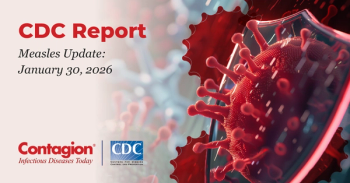
Even if Previously Infected, a COVID-19 Booster Vaccine Is Essential
Antibody levels decline in individuals with hybrid immunity similarly to vaccinated individuals, meaning all people need a booster vaccine to protect against future, potentially severe, infection.
An additional COVID-19 "
One common reason for not recieving a booster is the belief that "natural immunity," or the antibody response generated by a prior COVID-19 infection, offers sufficient protection.
How effective is a prior
"The fact that antibody levels also decline in individuals with hybrid immunity— albeit not as rapidly than among those who were never infected— challenges the previously held assumption that these people don't need further boosters. Our study suggests that they do," said Michael Edelstein, a professor at Bar-Ilan University's Azrieli Faculty of Medicine and a co-author of the paper.
The
Participants gave blood every 2 months, and investigators measured their change in antibodies over time and according to age, ethnicity, race, gender, and prior infection. All healthcare workers with a suspected COVID-19 infection were PCR tested.
The cohort included 985 healthcare workers who received at least 1 vaccine dose and 1 serological test after vaccination. Of these, 86 received 1 vaccine dose, 141 received 2 doses, and 758 received 3 doses. 118 healthcare workers had contracted COVID-19 before vaccination, and were thus considered to have “hybrid immunity” from vaccination and prior infection.
Participants who were younger in age or had a previous COVID-19 infection initially had higher IgG antibody titers (p<0.001 in both populations). However, at 6-7 months after primary vaccination, IgG level differences significantly decreased or disappeared. "Infection in itself is not enough to protect individuals over the long term,” Edelstein said.
The proportion of healthcare workers infected before primary vaccination and re-infected after their first dose (4.2%) was similar to the proportion of healthcare workers without prior COVID-19 infection who had a breakthrough infection after their second dose (4.7%). In the 40 participants who had a breakthrough infection after dose 2, their pre-infection IgG levels were similar to the IgG levels of vaccinated participants who remained uninfected.
In all age groups, the investigators found widespread antibody waning over time and high IgG levels after receiving a booster vaccine. “Our data suggest that immunological waning occurs in vaccinated, naturally infected, and infected-then-vaccinated groups, regardless of age and ethnicity,” the study authors wrote. “Ongoing detailed large observational cohorts that measure antibody function and have sufficient clinical outcome incidence will help clarify to what extent, after how long and in terms of which variants, these individuals are again at risk.”
Newsletter
Stay ahead of emerging infectious disease threats with expert insights and breaking research. Subscribe now to get updates delivered straight to your inbox.

































































































































